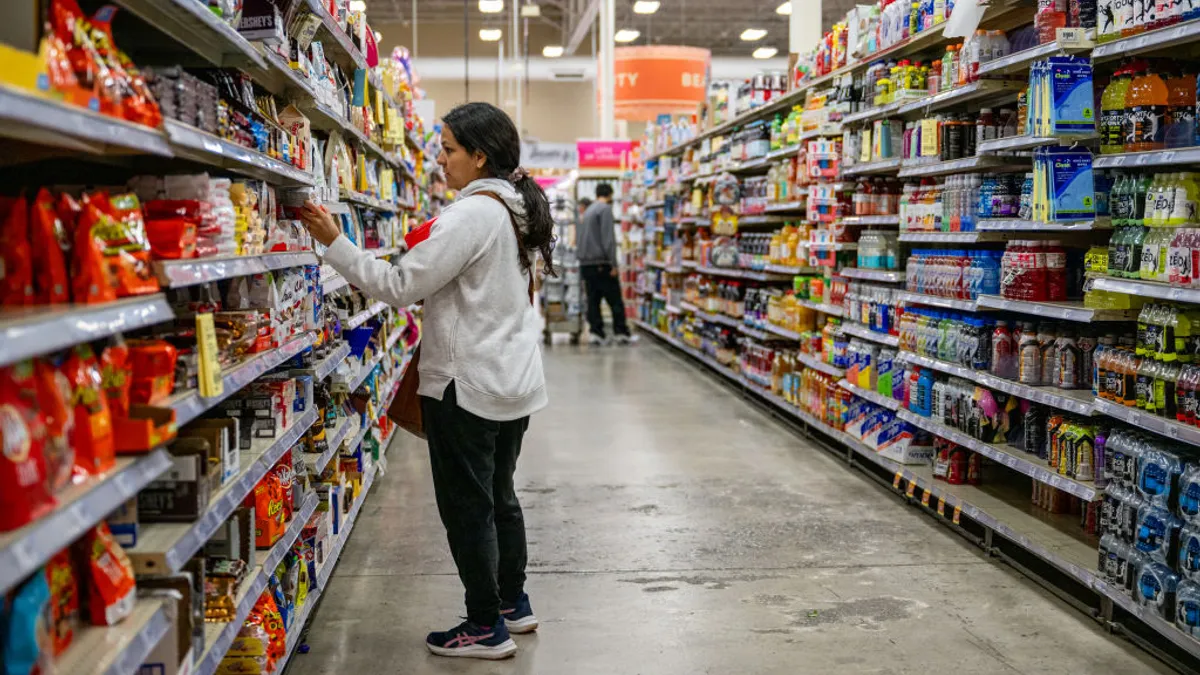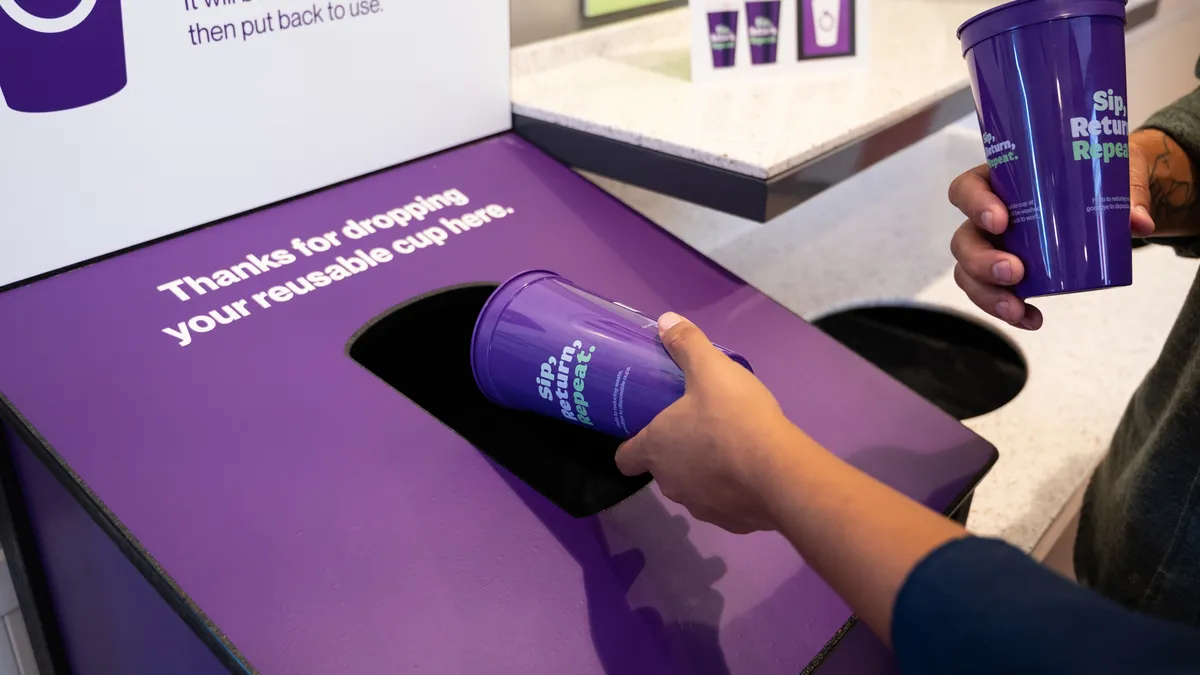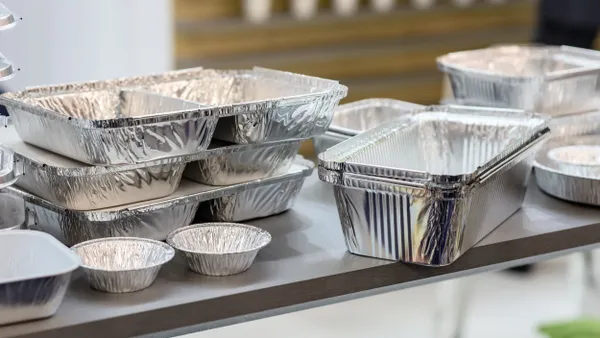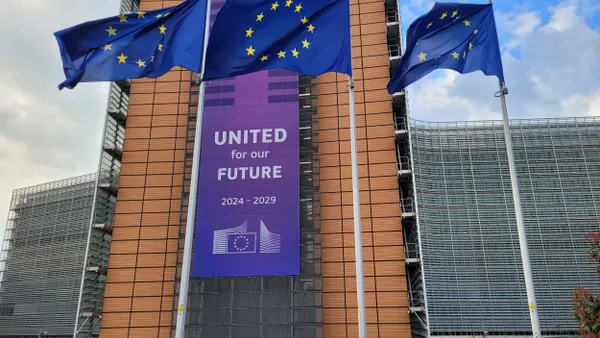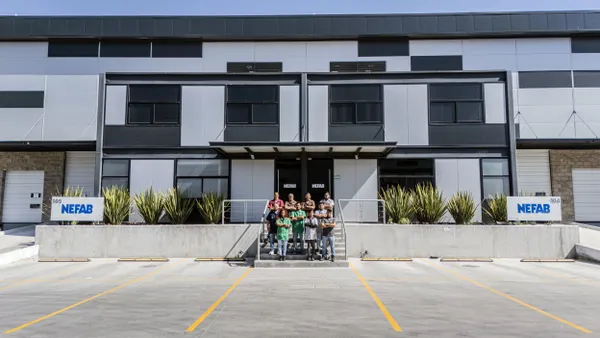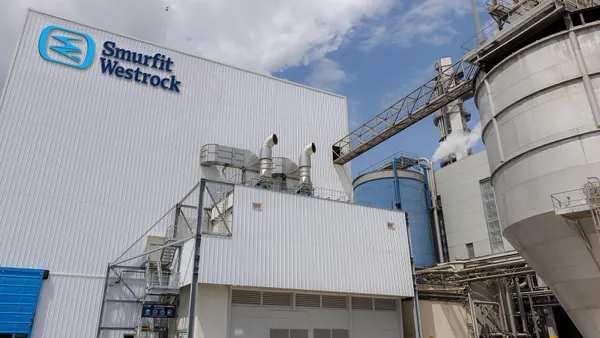Dive Brief:
- Berry Global released its 2022 Impact Report on Tuesday, detailing progress toward 2025 ESG goals around circular economy, climate change risks and opportunities, business ethics, employee engagement and more. Scope 1 and 2 emissions declined 21% since 2019, and Berry said it’s on track to hit a 25% reduction by 2025 from a 2019 baseline ahead of schedule. Berry also reported a 9% reduction in Scope 3 emissions since 2019.
- The Evansville, Indiana-based plastic packaging company said the proportion of reusable, recyclable of compostable fast-moving consumer products declined in 2022 to 79% from the 86% noted in the 2021 report, which was attributed to changes to certain recyclability classifications. Almost all of those noted products are recyclable; less than 1% are considered reusable or compostable.
- The company reported a 28% year-over-year increase in purchase of postconsumer recycled plastic. PCR now makes up 3.4% of its overall resin purchases, up from 2.6% in 2021. PCR and post-industrial resin made up 8.7% of total resin consumed in 2022. The company is aiming to reach 10% recycled content across its packaging by 2025.
Dive Insight:
The packaging sector continues to try to reduce the environmental impact of products and processes. New to Berry’s ESG efforts since last year’s report include a more ambitious Scope 3 emissions goal (targeting the value chain) and a direct connection to executive compensation.
Last year the company said it hit its previous 8% reduction target four years ahead of schedule and named an updated goal of 25% by 2025 from a 2019 baseline. And Robert Flores, Berry’s vice president of sustainability, in the 2022 report pointed to the company’s 2023 proxy statement released in January, which states that beginning with fiscal year 2023, 10% of the short-term annual performance-based cash incentive will be determined by a greenhouse gas emissions target.
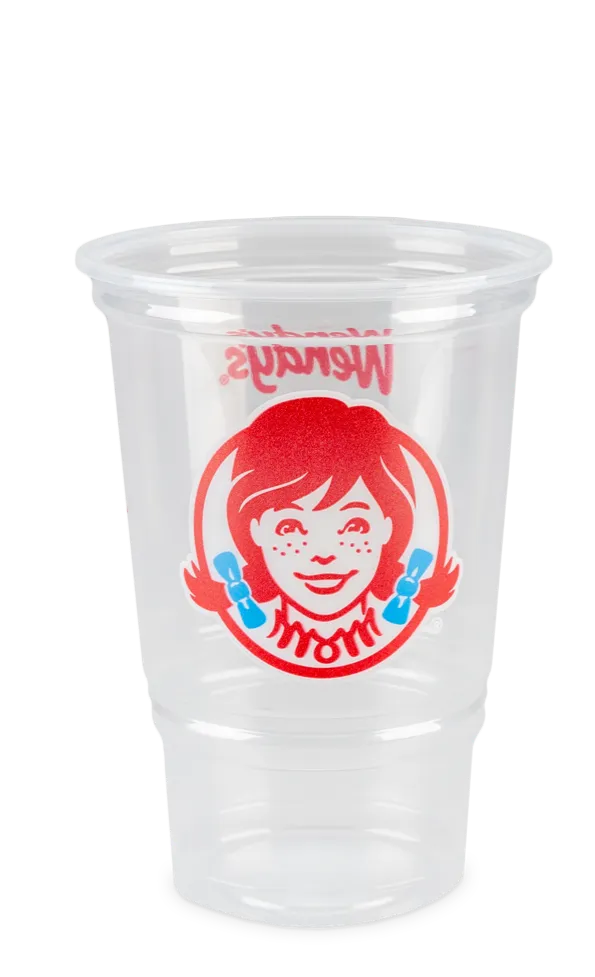
The ESG report also highlighted recent customer collaborations, including on clear drink cups with fast food restaurants Wendy’s and Taco Bell. The Wendy’s cup incorporates 20% ISCC-certified “advanced recycled” plastic, while the Taco Bell cup uses 10% recycled HDPE, including food-grade content from the likes of milk jugs.
Meanwhile, the report identified “growing legislation and consumer preference changes due to concerns around plastic waste” as an example of a top risk.
The proportion of reusable, recyclable of compostable fast-moving consumer products declined in 2022 to 79% from the 86% noted in the 2021 report. “We reclassified several items as unrecyclable that we had previously classified as recyclable in an effort to be as accurate as possible as we strive for a circular economy,” Flores said in an emailed statement.
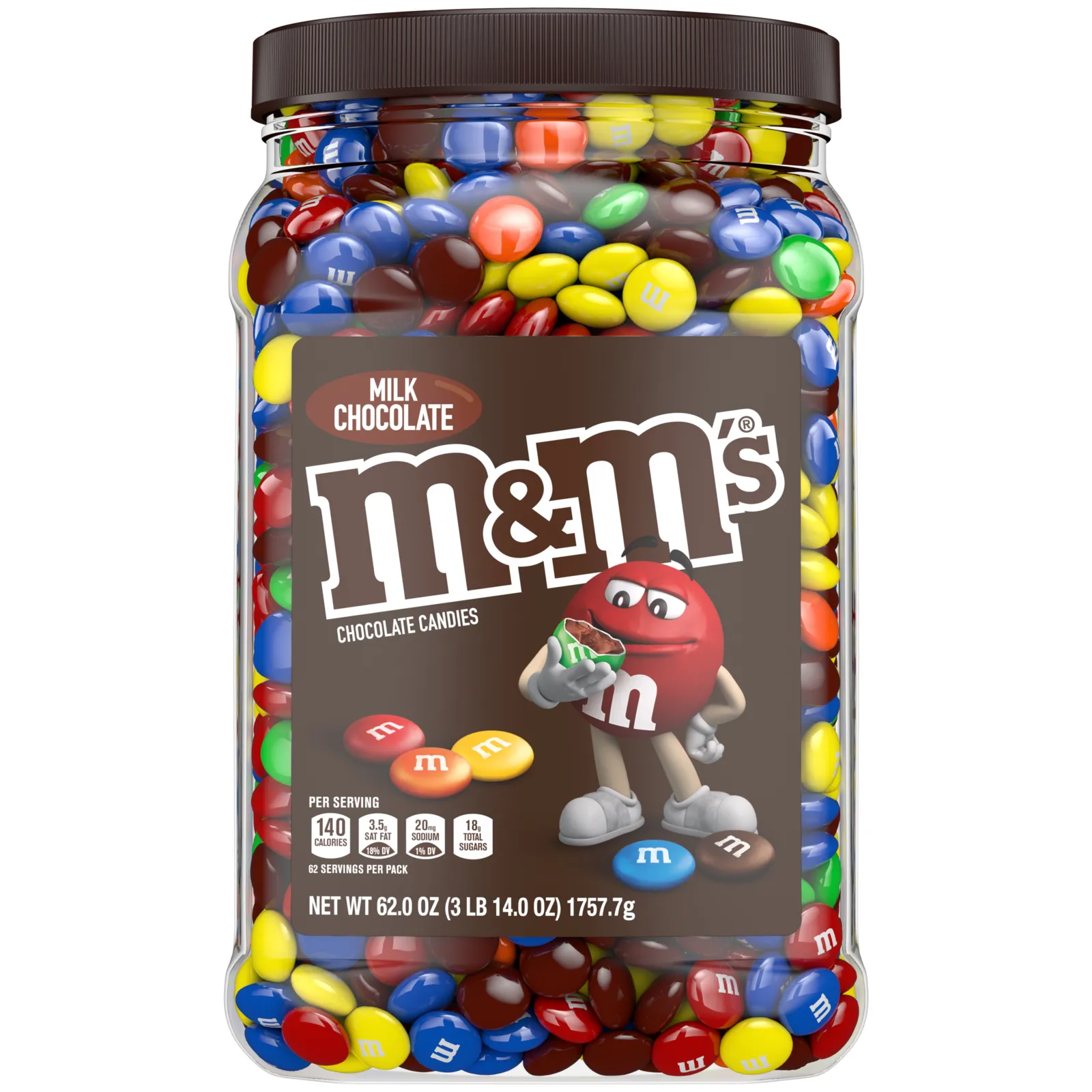
Flores gave the example of PET and HDPE bottles which “are typically considered recyclable.” But if they’re colored with carbon black they are undetectable by the optical sorters frequently used at MRFs.
Related companies that have recently released 2022 sustainability reports include Ball Corporation and Constellium.





